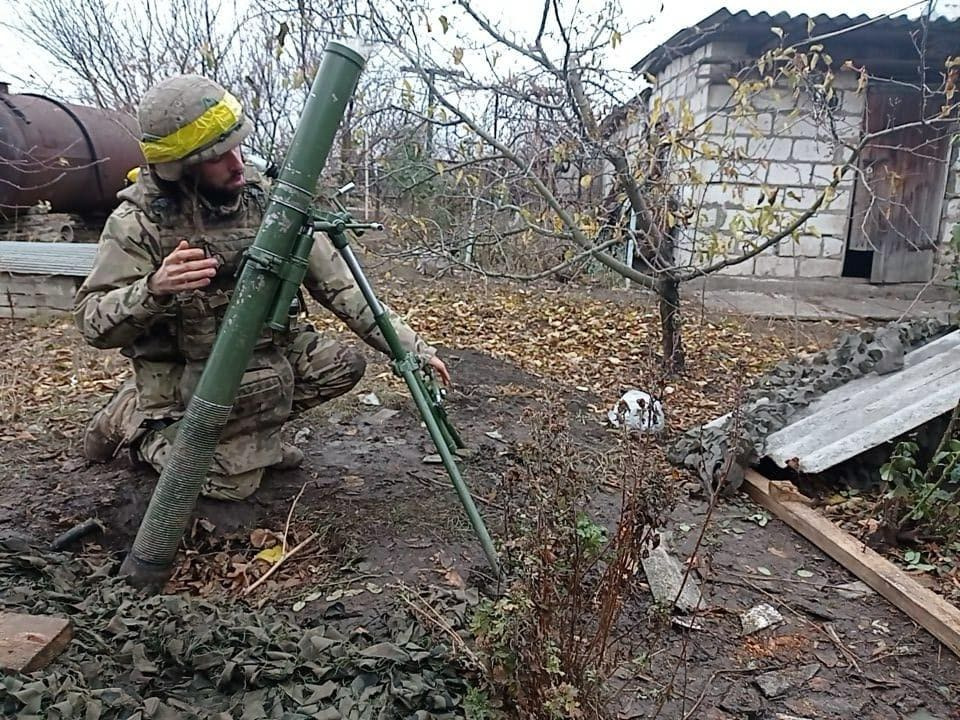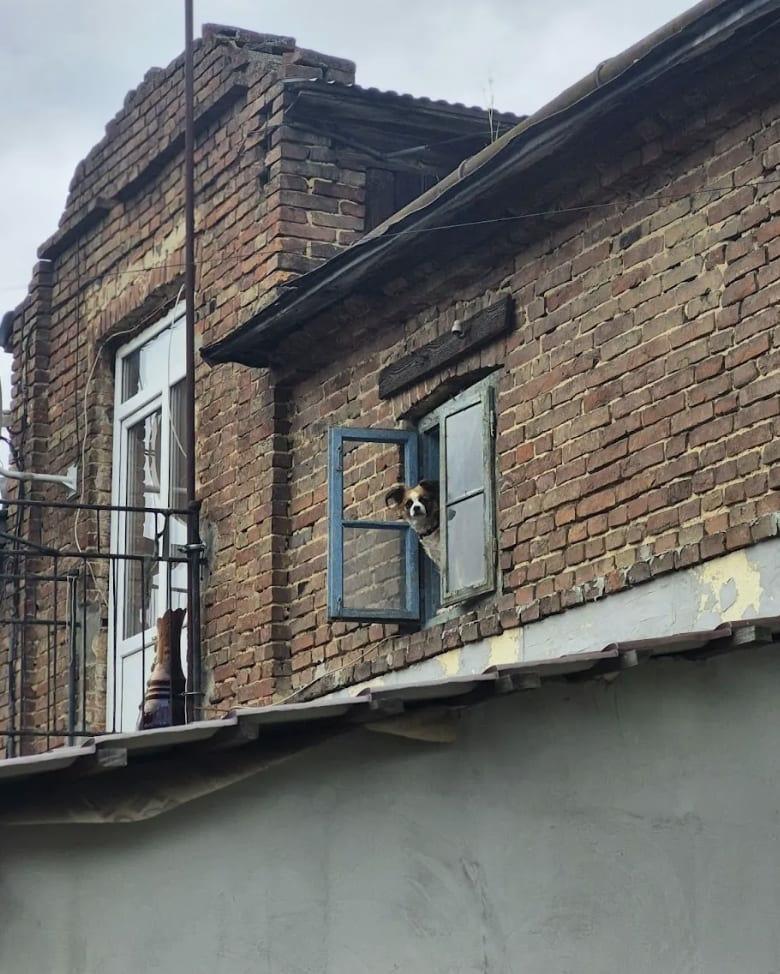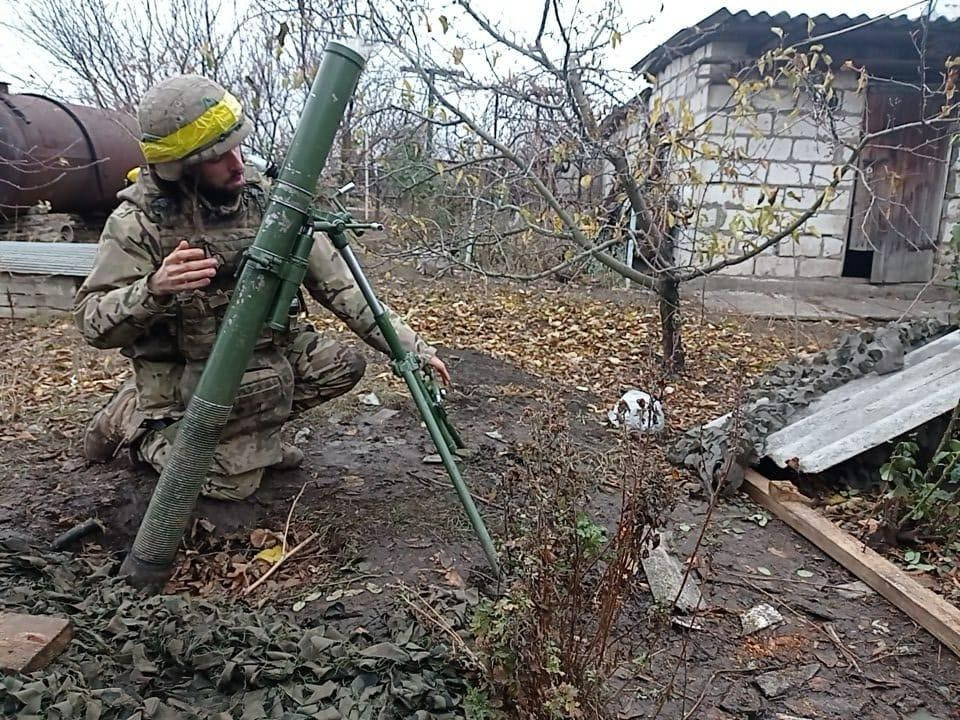
Featured Subscriber Comment: By username: #DebDag
“This is the single, most important Substack I read all day, every day. I admire the team here, and see you all as my larger family in this disparate world. I mentioned once in another post here that I see the Counteroffensive reporters as my children (as they are similar in age).
It’s true, you’ve made the news from Ukraine come alive for me and others. You bring the personal touch to news from a nation at war through no fault of its own. I pray that you all continue to conduct the critical work you’re achieving, safely. Thank you all!
Here in the Black Sea lowlands, the air temperature in summer can reach 40+°C (104° F).
The earth, body, and brain are scorched.
It seems that even the blood in your veins is about to boil.
The last people you would expect to meet here, in a platoon of mortar gunners, are anarchists. By definition, the last thing you’d think they would be doing is waiting for orders.
Yet here they are.
Anarchism is a radical, idealized political philosophy that envisions the liberation of the individual, the elimination of hierarchies, and the abolition of the state in favor of voluntary cooperation. In other words, it’s a far cry from what Ukraine is fighting for, which is to preserve the right to exist as an independent country.
And yet Russia’s attacks have so infuriated some anarchists that they’ve joined the army. And, as the soldiers themselves joke, there are only three ways out: being killed in action, wounded in action, or going to prison.
Just a month ago, one of Ukraine’s most well-known anarchists, Davyd Chychkan, died defending the country. Mourners attending his military funeral bid farewell to him against the backdrop of black anarchist flags, blue-and-yellow flags of Ukraine, purple-and-black anarcho-feminist flags, LGBTQ+ flags, and even red-and-black banners of anarcho-communism.
In a world where political views can determine whether you will sit at the same table as someone else, or keep in touch with a brother or a childhood friend, the Ukrainian army is proof that a higher goal can eclipse political disagreements.
The Ukrainian army, despite its top-down nature, blends together all types of people for a common cause – and for this period at least, they can agree that at a minimum freedom and liberation require first the successful resistance of Ukraine against Russia.
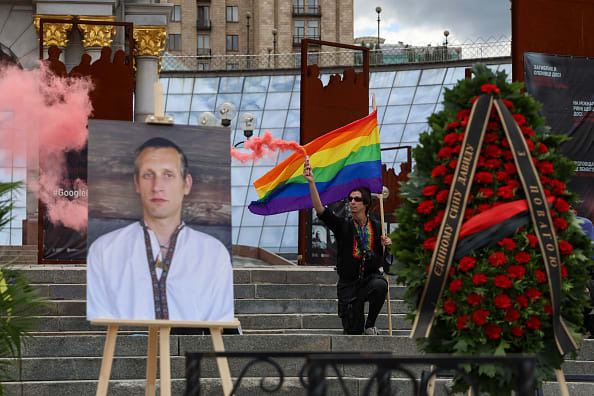
For Faust, a mortarman who joined the Armed Forces of Ukraine in 2024, serving in the military doesn’t change his anarchist views. He just has different reasons for serving.
“An anarchist goes to fight not to defend the concept of statehood or some concept of nation or something like that,” he said, laughing. Instead, he simply wanted to protect people whose lives were destroyed by Russia, those who’d been forced to flee, who lost their homes, and had been separated from their families.
Faust, who can disclose only his callsign for security reasons, found himself in a unit where half of the soldiers are anarchists just like him.
After returning to Ukraine at the end of 2022, Faust began searching for a unit where he’d feel comfortable, one with people who share his views and philosophies. That’s how he found his future commander, who’s also an anarchist.
As a mortarman, Faust is directly involved in combat operations. Before the full-scale invasion, he lived and studied in Germany, speaking German fluently; hence, his callsign — ‘Faust,’ named after the central сharacter of a famous German legend.
Despite his anarchist views, he said he feels a sense of belonging to the Ukrainian land.
“A person can come from Georgia, live in Ukraine for a year, fall in love with this country and say that ‘I am Ukrainian,’ and that will be true,” Faust said. “The concept of the Ukrainian nation is not about where you were born, but whether you feel a connection with the people and the place where you are.”
Faust spends much of his time waiting for orders to come in, usually requiring that he and his unit open fire on a target. While waiting, the group does other work: digging a dugout, cleaning weapons, preparing ammunition, or improving camouflage.
Anarchists aren’t known for their propensity to obey.
Still, when they do get an order, they spring into action to carry it out. The process of calculating the distance begins, and the battery commander stays in the dugout to keep in contact with headquarters, passing commands and coordinating the operation.
There are people of different professions and walks of life in Faust’s unit, but they are all volunteers. When he first joined, about half of his platoon was made up of anarchists, and recently two of them were killed: Davyd Chychkan in August and Serhii ‘Pukh’ Apukhtin in May.
“Pukh always asked how everyone of our comrades was doing, whether everything was okay. Someone complains that, oh, there’s no kit bag, Serhii would climb into a cupboard, hand you his spare and say: ‘Take everything, I don’t need it,’” Faust said.
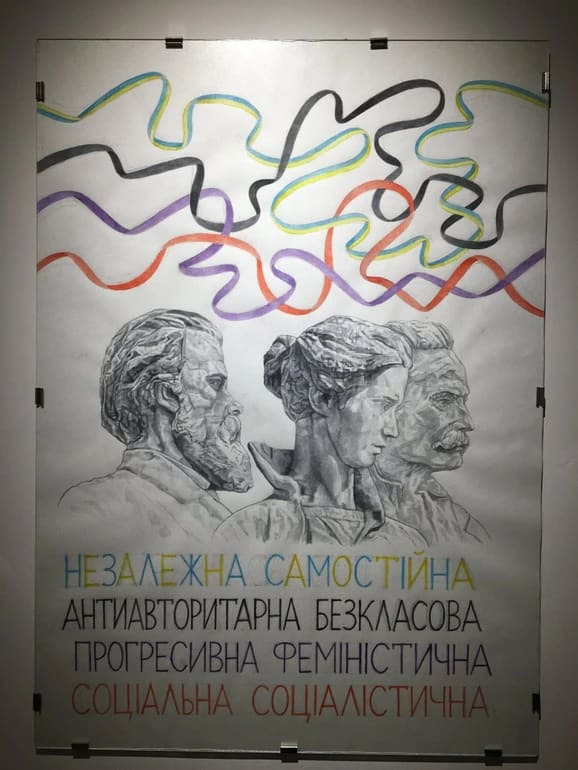
Chychkan was an artist, known for his controversial criticisms of what happened after the Revolution of Dignity.
His art exhibitions were wrecked by vandals, museums were forced to cancel them due to threats, and they provoked both debate and outrage. They showed Chychkan’s views on life and his reflections on political events, criticizing nationalistic and right-wing sentiments in Ukrainian society, condemning the capitalist way of life, and promoting the principles of anarchism.
Chychkan joined the Armed Forces of Ukraine in the autumn of 2024, the same year as Faust. Just half a year earlier, another one of his exhibitions had been canceled.
He wanted to join the army back in 2022, but was rejected due to health issues. Despite his radically different political views from those in the Ukrainian government, he loved the Ukrainian people and wanted to stand shoulder to shoulder with them.
He died on August 10 on the Zaporizhzhia front while performing a combat mission.
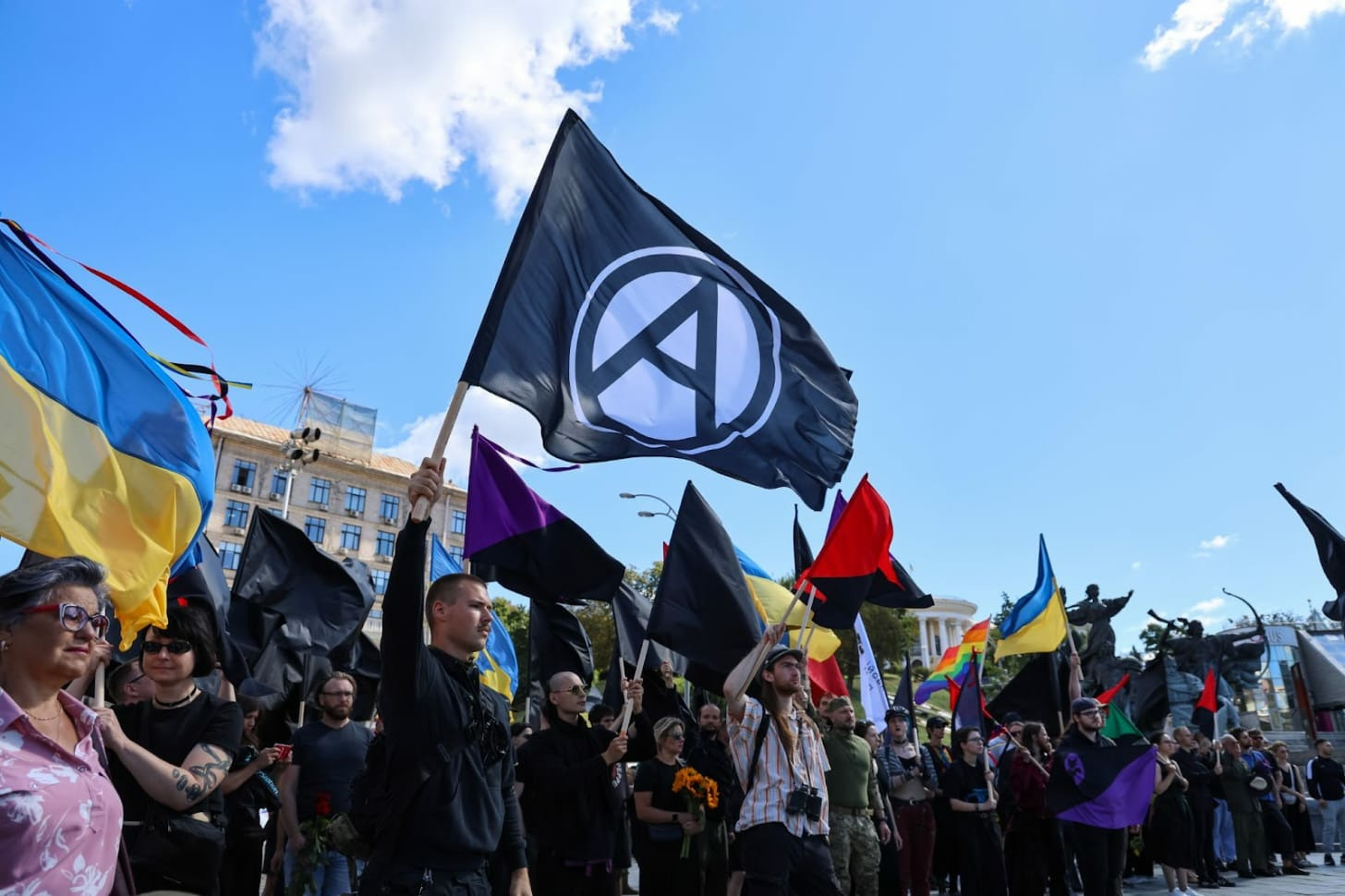
“You don’t feel like just a soldier who is given orders,” Faust said of his unit. “You feel brotherhood.”
He can criticize the commander when appropriate, he said, and likewise, he listens to proposals or criticism from his own subordinates. This is possible because the fighters of his unit are anti-authoritarians, but elsewhere in the military hierarchy, there is much less room for discussion.
And even though the structure of the Armed Forces of Ukraine does not provide for collective problem solving, and orders usually come from the top-down rather than the other way around, anti-authoritarians like Faust and David focus on fighting the greater evil.
“The absurdity [of the army] is that sometimes we could fight better, but we can’t because of orders and decisions from above,” Faust said.
The principle of brotherhood has been inherent in the Ukrainian people and army since the days of the Zaporizhian Sich, a militarized proto-state of Cossacks that existed from the 16th to the 18th century.
Later, during the Ukrainian national liberation struggle of 1917-1921, Ukrainian anarchism was put into practice and led by the legendary Nestor Makhno. He established a mass movement to bring anarchist communism to the country with plans to develop it as a political ideology.
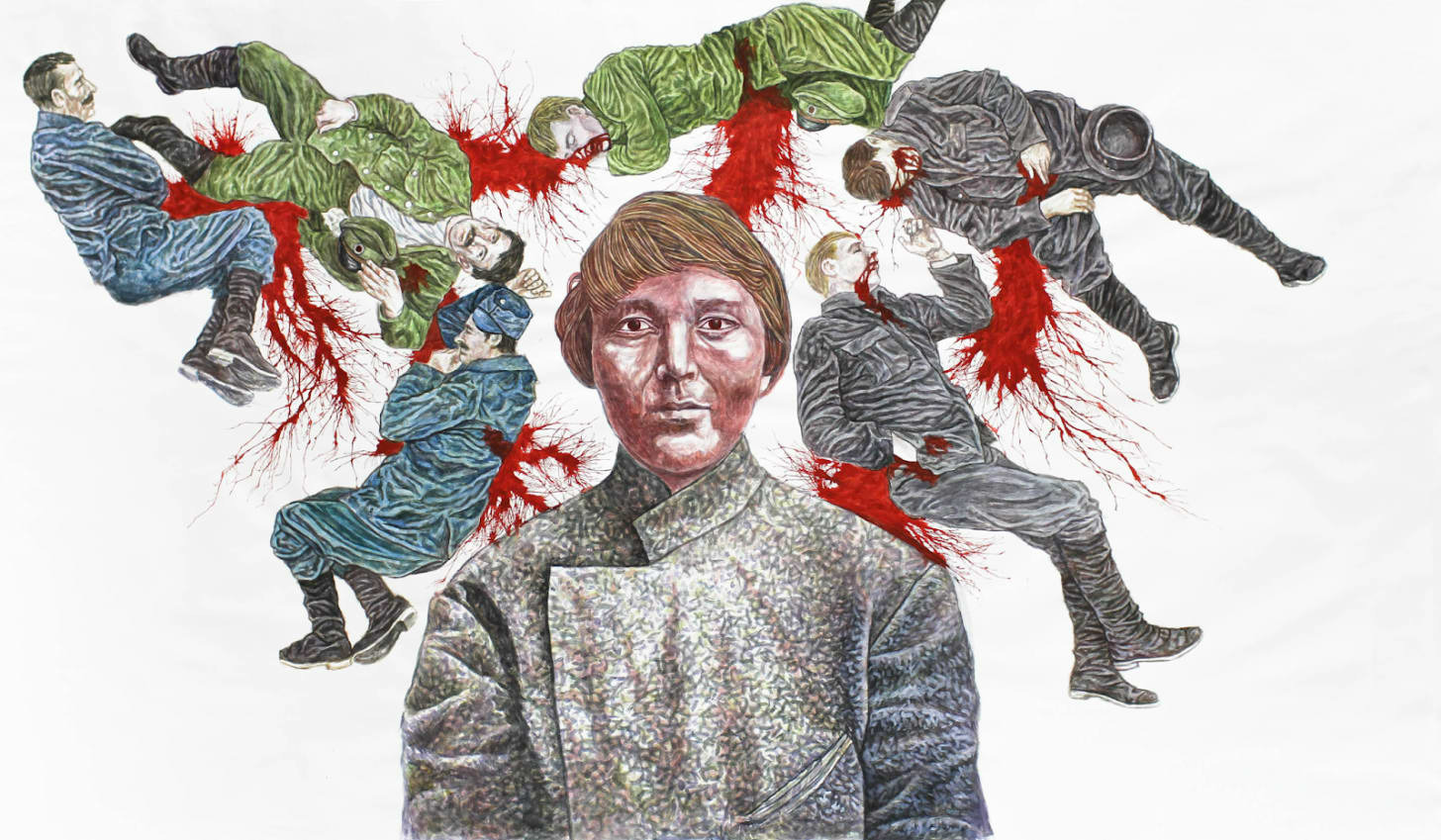
“We are anarchists, leftists, we often talk about the working class, solidarity with ordinary people, not those who hold power,” Faust said. “And what better way to unite with ordinary people from the most diverse backgrounds than to be shoulder to shoulder with them?”
Several well-known anti-authoritarian figures were among those lost during the war, including Dmytro “Leshy” Petrov, Cooper “Harris” Andrews, and Finbar Cafferky.
The trio – comprising a Russian national, an American, and an Irishman, respectively – disappeared without a trace in combat operations near Bakhmut in 2023.
In 2024, a fighter of the ‘Siberian battalion’ of the Armed Forces of Ukraine, Russian anarchist Vladyslav ‘Pirate’ Yurchenko, was killed in action.
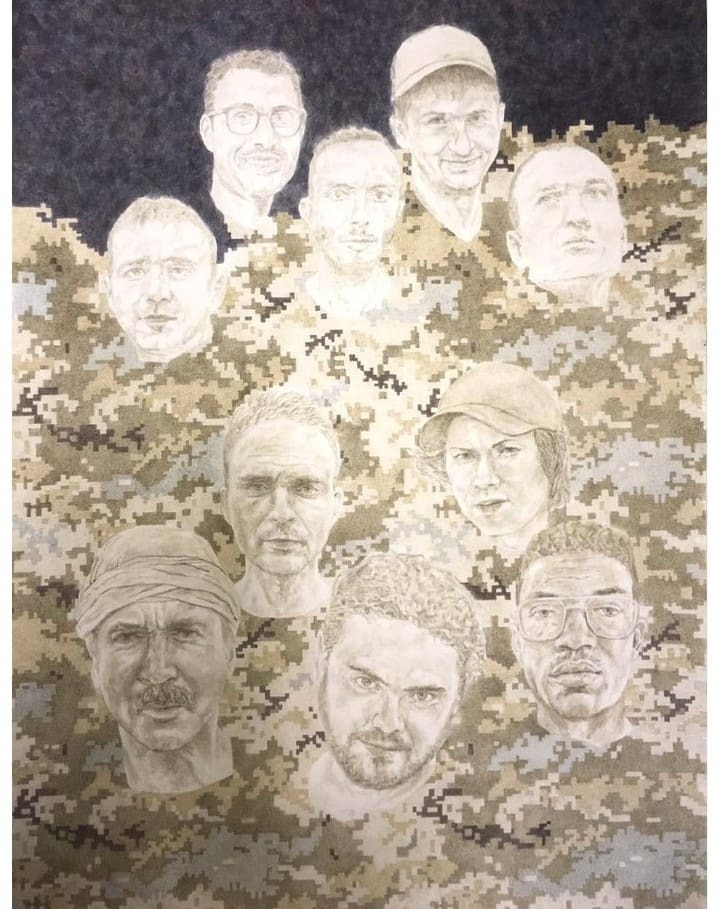
Even if anarchists oppose capitalism and the concept of statehood, the threat of a greater evil trumps all political concerns, even if that means putting some of one’s ideals on the back burner.
“We dream of some anarchist systems that we consider better than what exists now, but unfortunately, we exist in the real world,” Faust said. “A world that is not ideal should not stop you from doing everything you can from your position.”
Featured Subscriber Comment:
This is the single, most important Substack I read all day, every day. I admire the team here, and see you all as my larger family in this disparate world. I mentioned once in another post here that I see the Counteroffensive reporters as my children (as they are similar in age).
It’s true, you’ve made the news from Ukraine come alive for me and others. You bring the personal touch to news from a nation at war through no fault of its own. I pray that you all continue to conduct the critical work you’re achieving, safely. Thank you all!
NEWS OF THE DAY
By: Tim Mak
GAS OUT, COLD WINTER AHEAD: Russian attacks have destroyed more than half of Ukraine’s gas production, meaning that Ukraine will need to spend billions of dollars on fuel imports to get through the looming cold season.
Assaults by Russia this past week in Poltava and Kharkiv were especially impactful, Bloomberg reports. The current bill for emergency energy repairs is already staggering: 758 million euros. The cost of physical damage to energy infrastructure has been more than $20 billion.
RUSSIA WARNS ABOUT TOMAHAWKS: The United States is currently considering giving Ukraine access to Tomahawks missiles, leading the Russian government to warn of the “severity of consequences” if this were to happen.
“The hypothetical use of such systems is only possible with the direct involvement of American personnel. I hope those pushing Washington towards this decision fully understand the depth and severity of the consequences,” Russian Deputy Foreign Minister Sergei Ryabkov said, per European Pravda.
ZELENSKYY: I’LL LOBBY FOR TRUMP NOBEL, IF…: Should Trump approve the provision of Tomahawk missiles for Ukraine and broker a peace, the Ukrainian president said he’ll nominate the U.S. leader for the Nobel peace prize.
Zelenskyy said Tomahawk missiles – range: 1,500 km, or long enough to reach Siberia – will “sober the Russians up a bit, bringing them to the negotiating table.”
IEDs IN KYIV: A local teenager was recruited by Russian agents to take a bomb and remotely detonate it, the latest incident in the shadow war of sabotage between Russia and Ukraine. The CBC reports that Russia has been using encrypted apps to extort or pay Ukrainians -- wittingly or unwittingly – to pick up bombs or assassinate targets.
The problem has risen to the level that the SBU -- Ukraine’s secret services -- has sent officers into schools to lecture students on how not to be recruited.
DOG OF WAR
Zorіana’s friend saw this dog in her hometown. She tried to take a photo of him for three days, but he kept hiding from her. One day, she finally managed to take a picture, and in response, the dog started barking, probably wanting to see the photo immediately.
Stay safe out there.
Best,
Tetiana

